From climate change to children's cancer, UNSW's One Big Idea offers hope for the future.
At a sold-out event at the NSW State Library, seven of UNSW Sydney's leading academics, researchers and PhD students gave their pitches to make the world a better place.
Each participant spoke for 10 minutes, sharing their vision for positively transforming society. The audience learned about plans to neutralise children's cancer, how kindness could transform classroom learning and how rewiring AI could have far-reaching effects on our visual vocabulary.
The NSW Parliamentary Secretary for Trade and Small Business, Emily Suvaal, opened the night. She told the crowd that UNSW is contributing to a broad and diverse research ecosystem.
"UNSW is fostering an ecosystem that not only encourages and promotes big ideas but also creates the space and the environment in which they thrive and survive," she said.
"I want to acknowledge UNSW and their wonderful team for pulling together this event tonight and fostering that ecosystem within the walls of their establishment."
Researchers take to the stage to ask, "Imagine if"
...cancer treatments for children were tailor-made
More than 400,000 children and adolescents are diagnosed with cancer worldwide each year. Professor Maria Kavallaris, Founding Director of the Australian Centre for NanoMedicine at UNSW and a cancer survivor herself, said that nanoparticles could be a solution.
"Chemotherapy doesn't discriminate. It attacks cancer cells but also healthy cells in the gut, the heart and the lungs," she said.
"We've developed nano particles, which are tiny carriers, thousands of times smaller than a grain of sand, which we load with cancer drugs and then attach specific antibodies. These are molecules that have two targets. One side attaches to the drug-loaded nanoparticle, the other locks onto the cancer cell, delivering the therapy. It's like giving a drug a GPS and a key to the tumour."
...we rewired our understanding of AI to transform our visual vocabulary
Millions of AI images are generated every week, but they only offer a narrow view of reality. Dr Charu Maithani, a lecturer in Media, Journalism & Communication at UNSW, said AI is currently giving us a a narrow impression of the world, and that AI images need to reflect the multiple realities of our society.
"AI systems aren't neutral. Their assumptions about the world are creating and reinforcing cultural norms through images," she said.
"If we allow AI to flatten these ways of seeing into a single Western perspective model, we are not just losing aesthetic diversity. We need different ways of seeing, and we must insist that our image-making tools reflect our modern world."
...light unlocked the future of data security in quantum technology
Light has unlocked many technological advancements over the course of human history, from everyday items like infrared technology in toasters to lasers in telescopes. Dr Alison Goldingay, Postdoctoral Fellow at UNSW's School of Physics, said quantum technologies are next in line.
"What we're building is a system that we can use to control our photons (particles of light), which will then unlock their potential to be used in a variety of applications, like information security," she said.
Dr Goldingay's work also contributes to the development of photonic qubits - building blocks which make up quantum computers - which can store and carry information.
"Photons, like many atoms and subatomic particles, have different properties which lend themselves to being able to store information. They can carry little secrets which can only be unlocked with the proper key.
"If you try to unlock them with the wrong key, the information will disappear - this offers a new paradigm of information security, because if the information falls into the wrong hands and they try to unlock it, the data will disappear and they will lose access."
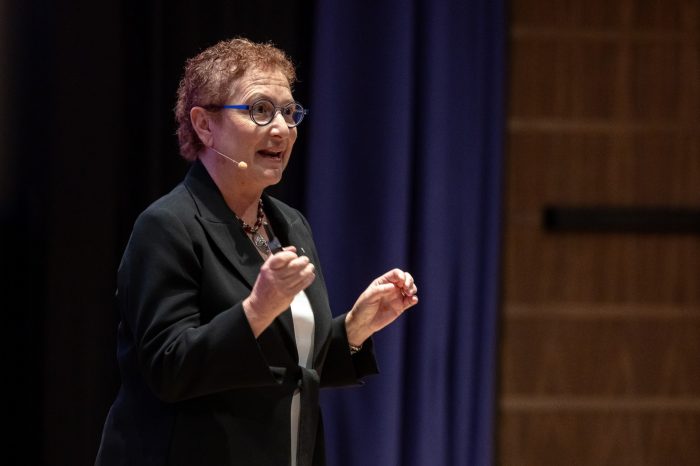
Professor Maria Kavallaris' research could deliver targeted drugs to children with cancer. UNSW 2025

Dr Charu Maithani said we must ensure AI reflects the modern world. UNSW 2025
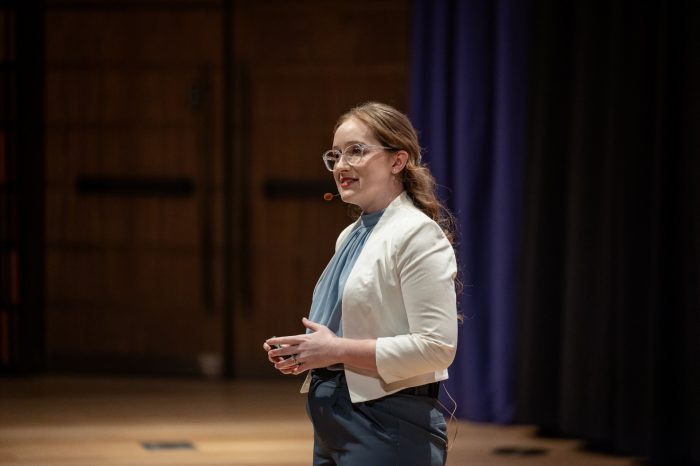
Light could unlock the future of data security in quantum technology, according to Dr Alison Goldingay. UNSW 2025
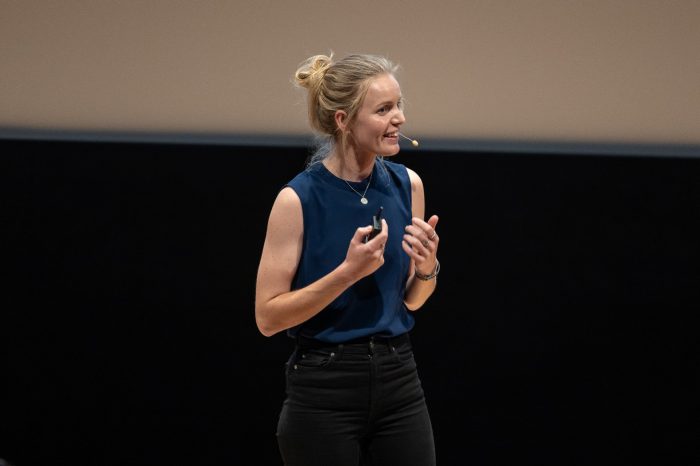
Ann Flemming Nielsen's research provides an artificial home for marine creatures, stemming the decline of seagrass meadows. UNSW 2025
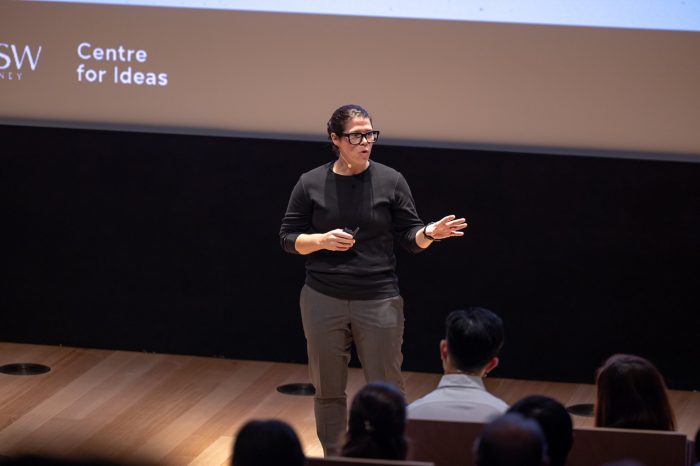
Dr Regina Jefferies said if we transform our systems to put communities first, we can more effectively plan for disasters. UNSW 2025

Dr Alexia Minchaca Acosta and her team are developing solutions to treat brain cancer. UNSW 2025
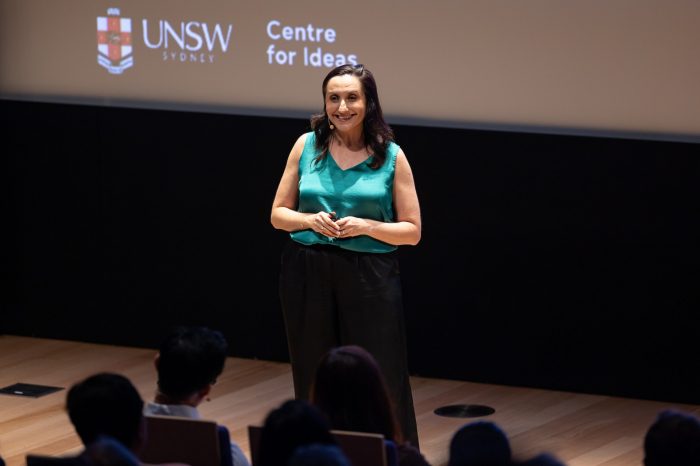
Kindness has the power to transform our education systems, Dr Gabi Nudelman said. UNSW 2025
...urban engineering designs could breathe new life into our oceans' habitats
Ann Flemming Nielsen, a PhD student at the Centre for Marine Science and Innovation, said that seagrass meadows - which are homes for many marine creatures seeking shelter - are in serious decline worldwide. Her research seeks to stem this decline by developing novel methods of restoration, using measures of urban engineering to simulate their ecosystem functions.
"Our artificial seagrasses mimic how seagrass leaves would have been dampened by the waves, how their roots would have stabilised the sediment and even how it would have improved the sediment's conditions," she said.
"These structures give our transplanted seagrass shoots a much better chance to take root, and little seagrass inhabitants are happy to move in, using this as their temporary home while they wait for the real deal to regenerate."
... we could rescue people from disasters without removing them from their homes
Disasters affect thousands of Australians, and as climate change worsens, even more will be at risk. So how can we effectively plan emergency responses to these disasters? Dr Regina Jefferies, Postdoctoral Fellow at UNSW Law & Justice, argued that the answer lies in community partnerships and a new mindset.
"We must stop designing systems that rescue people after the event and start building ones that empower people, fund material support and place decision-making authority with communities before evacuation becomes necessary," she said.
"We need to see people, especially First Nations people, as partners, not just potential evacuees, before the disaster happens."
... there was a key to unlock the treatment for brain cancer
Most medicine never reaches the brain due to a protective layer of cells around the brain's blood vessels. As long as the barrier exists, treating brain diseases remains very challenging.
Dr Alexis Minchaca Acosta, a research officer at the Children's Cancer Institute and Conjoint Lecturer at UNSW Medicine & Health, said that with the right key, her team could unlock the solution to treating brain cancer.
"98% of the drugs never reach the brain," she said. "Not because the drug is the problem, but because it doesn't get the chance to work."
Current methods of modelling this barrier are either costly, pose ethical concerns, or lack enough complexity to accurately depict it. Dr Minchaca Acosta's team has developed 3D spheres that can behave like the real barrier and has tested two different drugs to demonstrate their effectiveness.
"When we exposed our 3D spheres to these two drugs, the results were clear. The drug with the wrong key design couldn't cross the barrier, but the one designed to fit the lock was able to cross the barrier and find its way to the core of the sphere," she said.
"These tiny spheres are a powerful new tool to screen potential treatments faster, which could help us get the right drug to the right child sooner."
... kindness transformed university education
In an ideal world, kindness in education would come in spades. That's according to Dr Gabi Nudelman, a senior lecturer at the UNSW Business School, who argued that kindness - which she described as a quiet disruptor - is crucial for long-lasting impacts both inside and outside the classroom.
"We're not trying to be heroes. We are simply trying to create a culture where kindness isn't extraordinary but expected.
"Kindness means seeing, respecting and acknowledging the whole person, not just their product or output. It means embedding our actions and interactions with values like care, compassion and respect," she said.
Employers consistently rank skills like collaboration, negotiation and emotional intelligence as far more important than technical skills and knowledge alone. Dr Nudelman argued that when kindness is put into practice within the classroom, it paves the way for students to succeed.
"I'm talking about kindness with teeth, kindness with muscles, kindness that transforms systems by opening doors and creating opportunities for everyone, because for too many people, higher education is a difficult place to study and work."
We're not trying to be heroes. We are simply trying to create a culture where kindness isn't extraordinary but expected.






